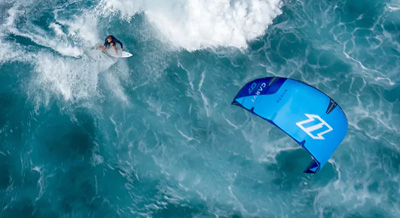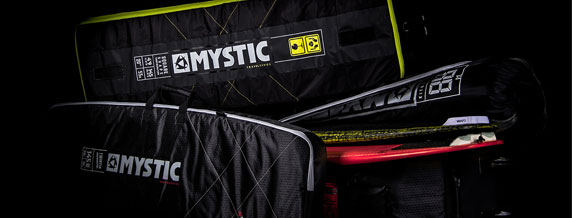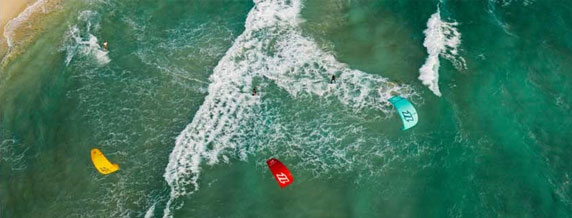Guide Débutant Kitesurf
Tout ce que vous devez savoir sur les ailes, planches de kite, combinaisons et harnais et comment sélectionner votre premier équipement ! Toutes les connaissances dont vous avez besoin sont fournies ci-dessous ainsi que des exemples de produits et des sets complets. Besoin d'aide pour trouver le bon équipement de kitesurf ? N'hésitez pas à nous contacter !

Acheter un Harnais
Nous vous aidons en tant que débutant à faire le bon choix de harnais
Harnais pour débutants
Votre harnais est l'une des pièces les plus importantes (et probablement les plus sous-estimées) de votre équipement. C'est la connexion cruciale entre vous et votre aile. Vous allez vous accrocher à beaucoup de puissance et utiliser votre harnais pour vous appuyer contre celle-ci… par conséquent, rien de moins qu'un ajustement parfait et le bon choix de matériaux pour faire l'affaire ! Pas d'inquiétude, après avoir lu la page suivante, vous saurez tout ce qu'il faut pour choisir un harnais confortable, fonctionnel et robuste :
- Quels types de harnais sont utilisés pour le kitesurf ?
- Quel harnais de kitesurf est le meilleur pour moi : culotte, ceinture ou harnais hybride ?
- Quel harnais ceinture est idéal pour moi : harnais souple, moyen ou à coque rigide ?
- Quelle est ma taille de harnais ?
- Dois-je prendre une barre de répartition (spreader bar) avec un crochet ou un slider ?
- Où dois-je connecter mon leash ?
- Comment prendre soin de mon harnais ?
- Puis-je utiliser un harnais de planche à voile pour le kitesurf ?
- Puis-je connecter un leash de planche à mon harnais ?
Quels types de harnais sont utilisés pour le kitesurf ?
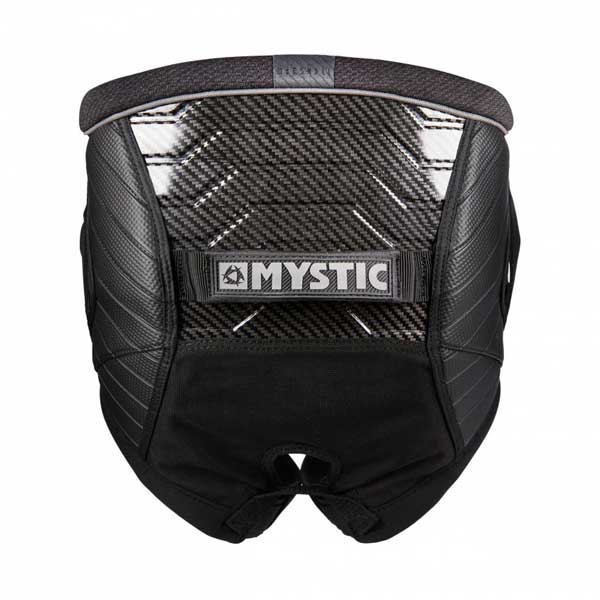 Harnais Culotte
Harnais Culotte
Les harnais culotte se portent sur les hanches, équipés de sangles de jambes, utilisés principalement par les débutants et certains foilers.
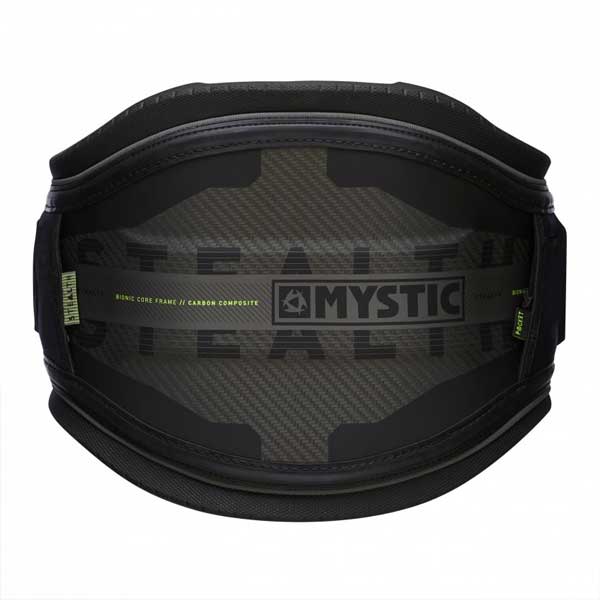 Harnais Ceinture
Harnais Ceinture
Les harnais ceinture se portent entre les hanches et les côtes, utilisés par la majorité des kiteurs intermédiaires et avancés.
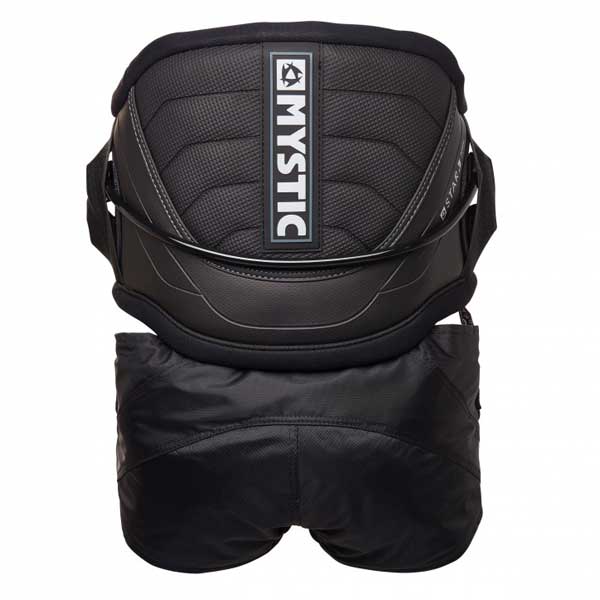 Harnais Hybrides
Harnais Hybrides
Les harnais hybrides se portent à la fois sur la taille et les hanches, harnais ceinture avec partie culotte détachable et sangles de jambes.
Quel harnais de kitesurf est le meilleur pour moi : culotte, ceinture ou harnais hybride ?
Les écoles de kitesurf utilisent principalement un harnais culotte pour l'enseignement, car ils sont plus pratiques au début. Pourquoi ? Lors de l'apprentissage du contrôle de l'aile et de la conduite de votre planche, la traction de l'aile sera principalement vers le haut et les harnais culotte ne peuvent pas glisser vers le haut, grâce aux sangles de jambes attachées. De plus, le crochet d'un harnais culotte est souvent beaucoup plus bas qu'un harnais ceinture, ce qui donnera moins de pression sur votre tronc.
Pour les débutants qui savent remonter au vent, les intermédiaires et les kiteurs avancés, nous recommandons généralement les harnais ceinture. Pourquoi ? Ils offrent plus de liberté de mouvement. Cependant, dans certains cas comme pour les foilers, les riders aux bras plus courts ou les personnes ayant des problèmes de dos, les harnais culotte peuvent être une meilleure option.
Quel harnais ceinture est idéal pour moi : harnais souple, moyen ou à coque rigide ?
Les harnais à coque souple sont flexibles et s'adaptent à votre corps et à vos mouvements. Cela offre beaucoup de confort, mais aussi le moins de soutien pour votre dos. Donc, si vous voulez naviguer dans le confort, optez pour un harnais à coque souple.
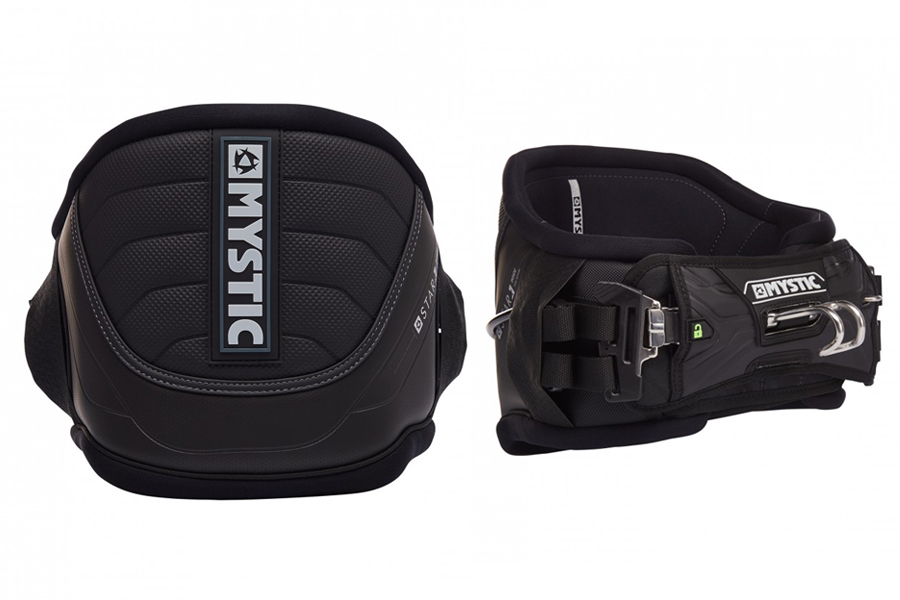
Les harnais à coque rigide sont rigides et gardent leur forme. Cela vous donne un retour très direct de votre aile et beaucoup de soutien. Le harnais à coque rigide idéal répartit la pression de l'aile uniformément sur toute la plaque dorsale et ne vous pince pas sur le côté. Si vous êtes ambitieux ou voulez rider par vent fort, optez pour un harnais à coque rigide.
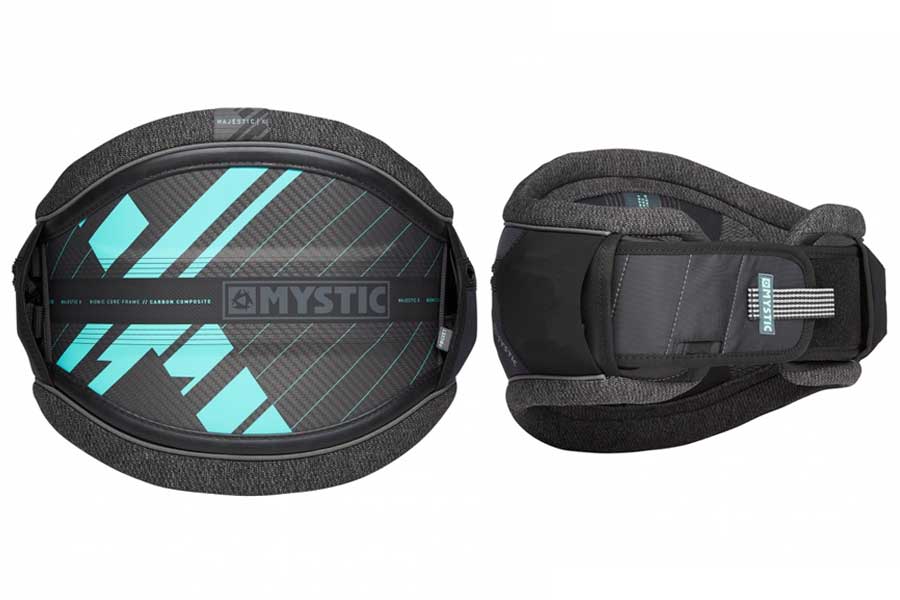
Les harnais qui sont entre les deux sont appelés moyens ou coques flexibles. Ce sont un mélange des deux. Certaines coques rigides sont plus flexibles que d'autres et d'autres ont une plaque dorsale très rigide et des panneaux latéraux flexibles. Cela offre un excellent mélange de confort et de performance et convient à la plupart des riders.
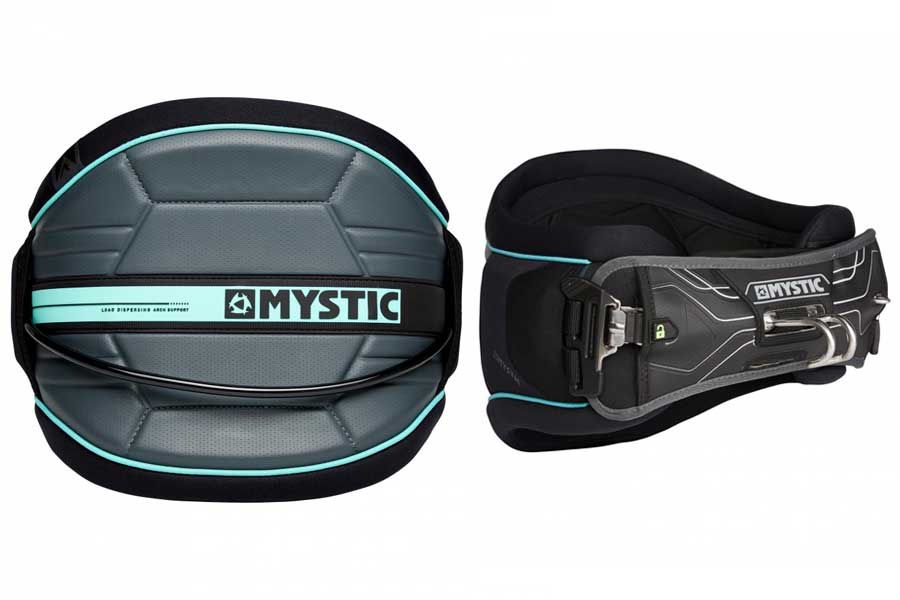
Quelle est la bonne taille pour moi ?
La plupart des fabricants proposent des harnais du XS au XXL. Nous avons téléchargé le tableau des tailles pour la plupart des harnais sur les pages produit de notre boutique en ligne. Mesurez simplement le diamètre de votre taille et vérifiez le tableau des tailles, quelle taille vous convient le mieux.
Dois-je prendre une barre de répartition (spreader bar) avec un crochet ou un slider ?
Certains harnais sont proposés avec une barre de répartition incluse. Mais pour les harnais plus avancés, vous pouvez choisir quelle barre de répartition vous voulez utiliser. Vous pouvez choisir une barre de répartition à crochet, une barre de répartition à slider ou maintenant vous avez aussi des barres de répartition qui peuvent offrir les deux disciplines en une seule barre de répartition.
Crochet : C'est une connexion fixe, où vous accrochez votre chicken loop et la sécurisez avec votre chicken stick. Cela résulte en un retour plus direct de votre aile. Les riders de twintip utilisent le plus souvent des barres de répartition avec crochets. Comme la plupart des débutants commencent sur un twintip, vous devriez d'abord prendre une barre de répartition avec crochet.
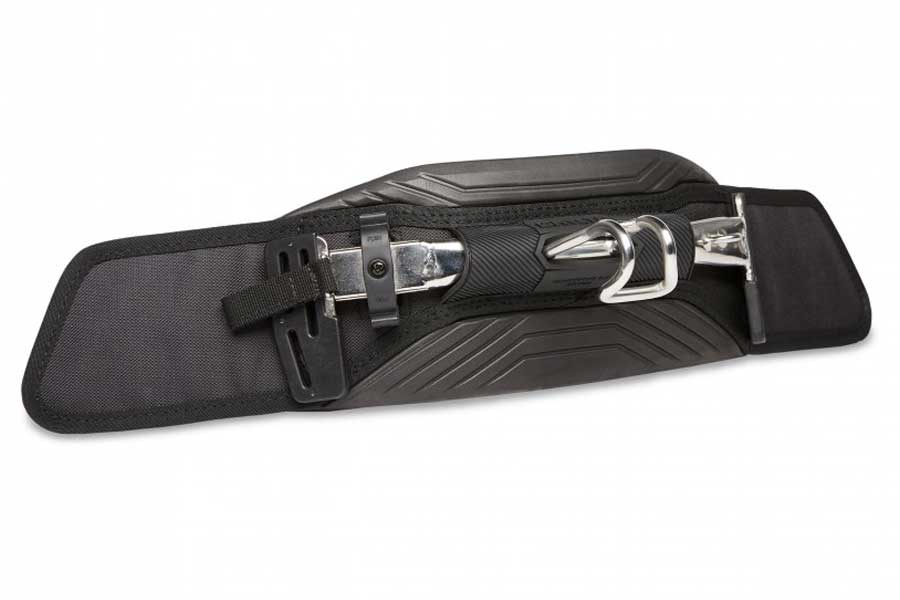
Slider : Pour cette connexion, vous ouvrez votre chicken loop, la tirez sous le slider et remettez votre chicken loop dans votre déclencheur rapide. Cette connexion peut donc glisser de gauche à droite. Cela résulte en plus de liberté de mouvement, lors de la torsion de vos hanches. Les riders de vagues et les foilers préfèrent souvent les barres de répartition avec sliders.

Combinaison de crochet et slider : la barre de répartition Stealth slider de Mystic a une boucle, que vous pouvez utiliser pour tirer l'anneau du slider à travers et cela vous donnera la même expérience qu'une barre de répartition à crochet. Quand vous pratiquez principalement le ride de vagues, mais aimez utiliser votre Twintip dans certains cas, cette option peut être très agréable.
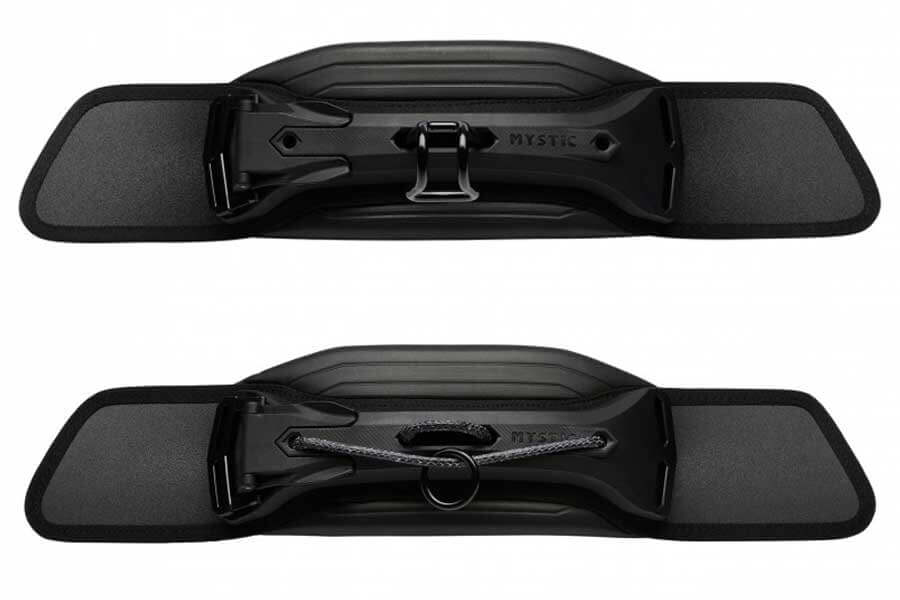
Où dois-je connecter mon leash ?
En tant que débutant, commencez toujours avec un leash court. Un leash long n'est pratique que quand vous faites du freestyle et vous décrochez.
Vous devriez toujours utiliser l'option de connecter votre leash à l'avant.
Comment prendre soin de mon harnais ?
Rincez-le régulièrement avec de l'eau froide et fraîche et ne le faites pas sécher en plein soleil
Puis-je utiliser un harnais de planche à voile pour le kitesurf ?
Non, les harnais de planche à voile ne doivent pas être utilisés pour le kitesurf ! Les crochets de planche à voile ont une forme différente des crochets de kitesurf et ne sont pas compatibles avec votre chicken loop et stick
Puis-je connecter un leash de planche à mon harnais ?
Non, n'utilisez jamais de leash de planche pour le kitesurf ! C'est une règle de base, car les chances sont très élevées que vous vous blessiez
Besoin d'aide pour trouver la bonne combinaison ? N'hésitez pas à nous contacter à tout moment !
Vous n'avez pas de produit(s) dans votre panier
Vous ne savez pas par où commencer?
Visitez notre service client pour obtenir des conseils

